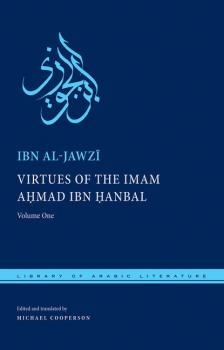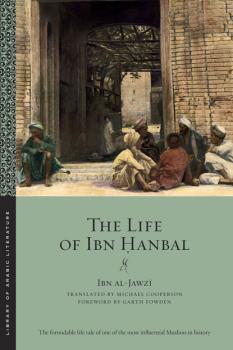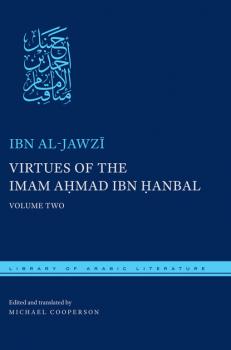ТОП просматриваемых книг сайта:
Ibn al-Jawzi
Список книг автора Ibn al-JawziАннотация
Ahmad ibn Hanbal (d. 241/855), renowned for his profound knowledge of hadith—the reports of the Prophet’s sayings and deeds—is a major figure in the history of Islam. Ibn Hanbal was famous for living according to his own strict interpretation of the Prophetic model and for denying himself even the most basic comforts in a city then one of the wealthiest in the word, and despite belonging to a prominent family. His piety and austerity made him a folk hero, especially after his principled resistance to the attempts of two Abbasid caliphs to force him to accept rationalist doctrine. His subsequent imprisonment and flogging became one of the most dramatic episodes of medieval Islamic history. Ibn Hanbal’s resistance influenced the course of Islamic law, the rise of Sunnism, and the legislative authority of the caliphate. tells the formidable life tale of one of the most influential Muslims in history.Virtues of the Imam Ahmad ibn Hanbal is a translation of the biography of Ibn Hanbal penned by the Baghdad preacher, scholar, and storyteller Ibn al-Jawzi (d. 597/1201). Volume One presents the first half of the text, offering insights into Ibn Hanbal’s childhood, education, and adult life, including his religious doctrines, his dealings with other scholars, and his personal habits. Set against the background of fierce debates over the role of reason and the basis of legitimate government, Virtues of the Imam Ahmad ibn Hanbal tells the formidable life tale of one of the most influential Muslims in history.A bilingual Arabic-English edition.
Информация о книге
Автор произведения Ibn al-Jawzi
Аннотация
The Life of Ibn Hanbal is a translation of the biography of Ibn Hanbal by the Baghdad preacher, scholar, and storyteller Ibn al-Jawzi (d. 597/1200), newly abridged for a paperback readership by translator Michael Cooperson. Ahmad ibn Hanbal (d. 241/855), renowned for his profound knowledge of hadiths—the reports of the Prophet’s sayings and deeds—is a major figure in the history of Islam. He was famous for living according to his own strict interpretation of the Prophetic model and for denying himself the most basic comforts, even though his family was prominent and his city, Baghdad, was then one of the wealthiest in the world. Ibn Hanbal’s piety and austerity made him a folk hero, especially after he resisted the attempts of two caliphs to force him to accept rationalist doctrine. His subsequent imprisonment and flogging is one of the most dramatic episodes of medieval Islamic history, and his principled resistance influenced the course of Islamic law, the rise of Sunnism, and the legislative authority of the caliphate. Set against the background of fierce debates over the role of reason and the basis of legitimate government, The Life of Ibn Hanbal tells the formidable life tale of one of the most influential Muslims in history. An English-only edition.
Информация о книге
Автор произведения Ibn al-Jawzi
Аннотация
Ahmad ibn Hanbal (d. 241/855), renowned for his profound knowledge of hadith—the reports of the Prophet’s sayings and deeds—is a major figure in the history of Islam. Ibn Hanbal’s piety and austerity made him a folk hero, especially after his principled resistance to the attempts of two Abbasid caliphs to force him to accept rationalist doctrine. His subsequent imprisonment and flogging became one of the most dramatic episodes of medieval Islamic history. Ibn Hanbal’s resistance influenced the course of Islamic law, the rise of Sunnism, and the legislative authority of the caliphate. Virtues of the Imam Ahmad ibn Hanbal is a translation of the biography of Ibn Hanbal penned by the Baghdad preacher, scholar, and storyteller, Ibn al-Jawzi (d. 597/1201). It includes insights into Ibn Hanbal’s childhood, travels, and teachings, as well as descriptions of his way of life. This second and final volume gives a vivid account of Ibn Hanbal’s legendary confrontation with the caliphal Inquisition, including his imprisonment, trial, and flogging. Ultimately, it recounts how the people of Baghdad came to admire him as a symbol of Sunni Islam. A bilingual Arabic-English edition.



